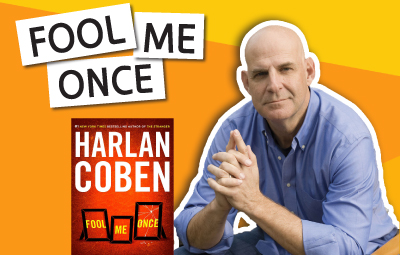
We are living in a day and age where we are witnessing a sharp moral decline. What was morally unthinkable only a few years ago, is today not only accepted, but celebrated. When Christians oppose or simply question new laws being introduced by government, they are called "bigots" or "haters" or accused of "not keeping up with the times". Even within the Christian community, there is a group that says that we are instructed in the Bible not to judge, but to love and accept - just like Jesus did, whilst another group says that these are merely "signs of the times" and that the "prophecies" made in the Bible concerning what will happen in the last days are being fulfilled and as a result, there is nothing anyone can do about it. Are we supposed to be passive and simply accept things as they are, or should we act? In a time where the world is asking questions, I still believe that the Church (under the guidance of the Holy Spirit) has the answers.
Over the past twelve months, I have read numerous articles written by popular Christian authors who suggest that if Jesus was walking on the earth today, He would be found amongst the sinners - in bars, clubs and casinos - quoting that when Jesus did walk amongst us, he was referred to as a "glutton and a drunkard, a friend of tax collectors and sinners" (Matthew 11:19; Luke 7:34 NIV). They also refer to the situation involving a woman who was caught in the act of adultery; the Pharisees wanted to stone her, but when they asked Jesus whether or not she deserved the death penalty, He replied by saying: "Let any one of you who is without sin be the first to throw a stone at her" (John 8:7 NIV). Their argument is that we should not judge - for only God can judge - as there exists no man or woman whom is "without sin". Whilst this is an argument with at least some merit, it unfortunately lacks one important component of basic Christian doctrine - the fact that God loves the sinner (person), but hates the sin.
While I do not expect non-believers to believe or even understand this important concept (doctrine), it saddens me that there are many Christians who cannot seem to understand that it is possible to "speak the truth in love", something we are admonished to do in Ephesians 4:15. But why is it important to speak the truth? Simply put, it is the truth and only God's absolute truth that can set us absolutely free. It is only when we hear the truth, receive the truth and act upon this truth that we are set free (John 8:32). As the saying goes: you can work in a soap factory and still stink - you have to apply it. While many believe that the truth judges, condemns and shames, the truth (spoken in love), in fact sets us free from shame, guilt and condemnation.
While it may not be pleasant to always hear the truth, the Bible promises that "we will grow" as a result thereof (Ephesians 4:15). What we need to understand is that people are more offended by the delivery of a message than the message itself and this is why we always need to speak the truth (message) in love (the proper delivery-method).
In light of the woman who was caught in the act of adultery, the Pharisees wanted to stone her, as being stoned to death was the penalty for committing adultery. Although the Pharisees spoke the truth (even quoting Scripture to Jesus), they were not speaking the truth in love. As a result, Jesus not only shows her mercy, but shows her love. Many people point to this fact and say that this proves that because of Jesus' grace, there are no real consequences for sin (as He simply released the woman, although she was caught committing an act that warrants the death penalty according to the law of Moses).
Yet some forget Jesus' last words to her, when He instructed her to "go and sin no more" (John 8:11 NIV). In this particular case, Jesus did not put her on trial, for they both knew what she had done and I am of the opinion that she left the scene that day, convicted of sin, but captured by love and acceptance. That day, she was not only shown mercy, love and acceptance, she was forgiven and set free, but then instructed to "go and sin no more", proving that it is indeed possible to love the person, but not condone the act or lifestyle. The instruction to "go and sin no more" should always produce a desire for holiness - even for us today.
In 1 Peter 1:14-16 (NIV), we read: "As obedient children, do not conform to the evil desires you had when you lived in ignorance. But just as He who called you is holy, so be holy in all you do; for it is written: "Be holy, because I am holy." Because God gave us His Truth, we no longer have any excuse to "live in ignorance", but we are called to be holy for He is Holy. Whereas living in ignorance results in sin and produces ungodliness, living in Truth results in freedom and produces holiness. So how exactly do we become holy? Is that even possible?
• We need to realize that we "all have sinned and fall short of the glory of God" (Romans 3:23 NIV), therefore the answer doesn't lie within ourselves, but the Son of God - Jesus Christ - for "God made Him who had no sin [Jesus] to be sin for us, so that in Him we might become the righteousness of God" (2 Corinthians 5:21 NIV). He became... so that we might become...
• The Bible instructs all of mankind to "repent". The word "repent" or "repentance" does not simply refer to acknowledging our sin before God, but to "think differently" and ultimately turn away from it by acting differently. This is why God warns us that we should not be "conformed to this world", but we must be "transformed by the renewing of your mind" (Romans 12:2 KJV). God called us out of the kingdom of darkness and into the Kingdom of Light. When we respond to that call, we have an obligation to no longer think or act the way we have done before.
Acting differently as a result of thinking differently is not only the evidence of true repentance, but also our salvation, "for they that are after the flesh do mind the things of the flesh; but they that are after the Spirit the things of the Spirit" (Romans 8:5 KJV).
When we have transformed our mind, by thinking and acting differently as a result of the revelation of Truth, we begin to walk according to the Spirit and not the flesh. The Apostle Paul (someone whom did not hesitate to speak the truth in love and as a result wrote two thirds of the New Testament) reveals this striking contrast between walking in the flesh as opposed to the Spirit in Galatians 5:19-23 (NIV):
The acts of the flesh are obvious: sexual immorality, impurity and debauchery; idolatry and witchcraft; hatred, discord, jealousy, fits of rage, selfish ambition, dissensions, factions and envy; drunkenness, orgies, and the like. I warn you, as I did before, that those who live like this will not inherit the kingdom of God. But the fruit of the Spirit is love, joy, peace, forbearance, kindness, goodness, faithfulness, gentleness and self-control.
It is my prayer that we will make the decision to seek and desire holiness in spite of the evident moral decline we observe in the world - for we are not of this world. "God is love" (1 John 4:8 NIV) and "He is the same yesterday, today and forever" (Hebrews 13:8 KJV), and "righteousness and justice remain the foundation of His throne" (Psalm 97:2 NIV). The Word of God (Truth) is still the only moral plumb line (the gold standard, the supreme authority) for a healthy, thriving society. I believe the main reason we are witnessing such a (sharp) moral decline, is because the world has rejected God and His authority and the Church no longer speak the truth in love. As Christians, we are called to be the light of the world (Matthew 5:14 NIV).
Philosophically, there is no such thing as darkness, for darkness is merely an absence of light. Therefore, for darkness to prevail, there simply needs to be an absence of light - men and women who are called by His Name, who decide to do nothing about the status quo. It is my prayer that we will stop complainingabout the problems in society and startbeing the solution, by speaking the truth in love and letting our light shine under the guidance of the Holy Spirit.
In closing, I want to remind you about a story of a twenty-six-year-old man, named Evan Roberts, who fervently prayed for revival to come to Wales during the turn of the twentieth century. The "conditions for revival" was not ideal - in fact, the moral fabric of society was similar to what we are witnessing today. It was reported that the spiritual wood was so dry, that even the smallest spark could ignite a mighty flame - it simply needed a spark. In September 1904, against all odds, the words "Bend me! Bend me!" would spark one of the greatest revivals since Pentecost.










































































